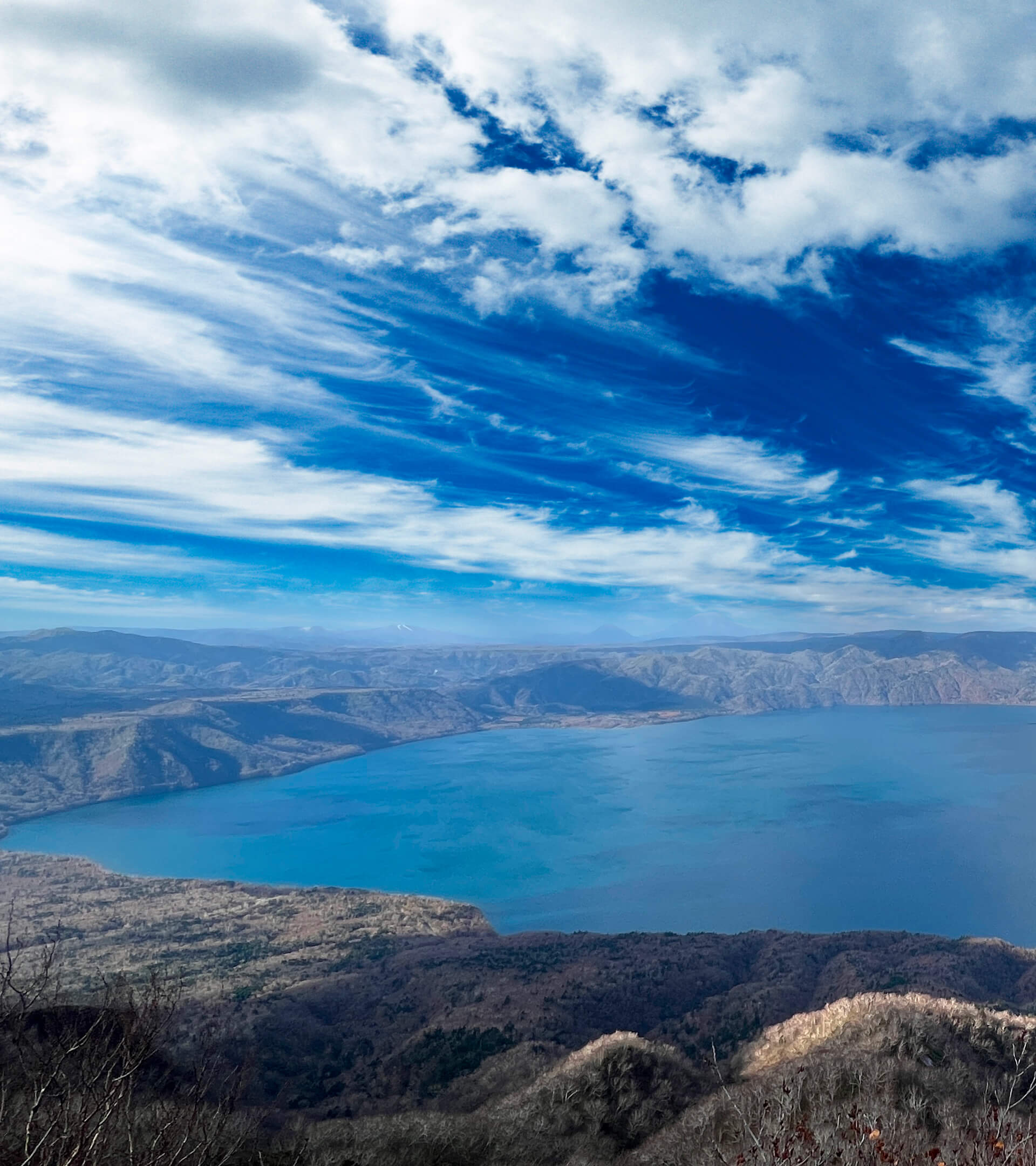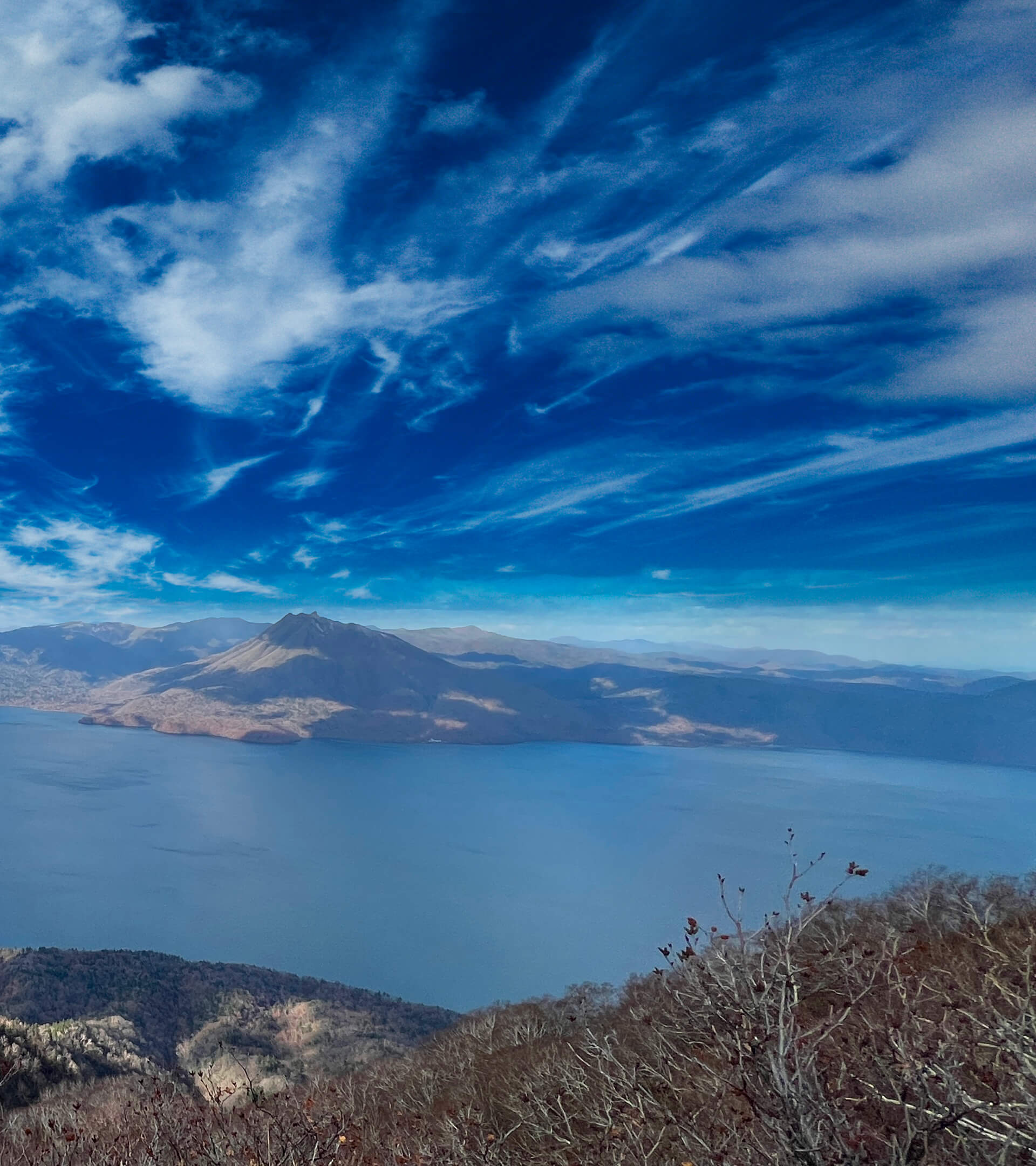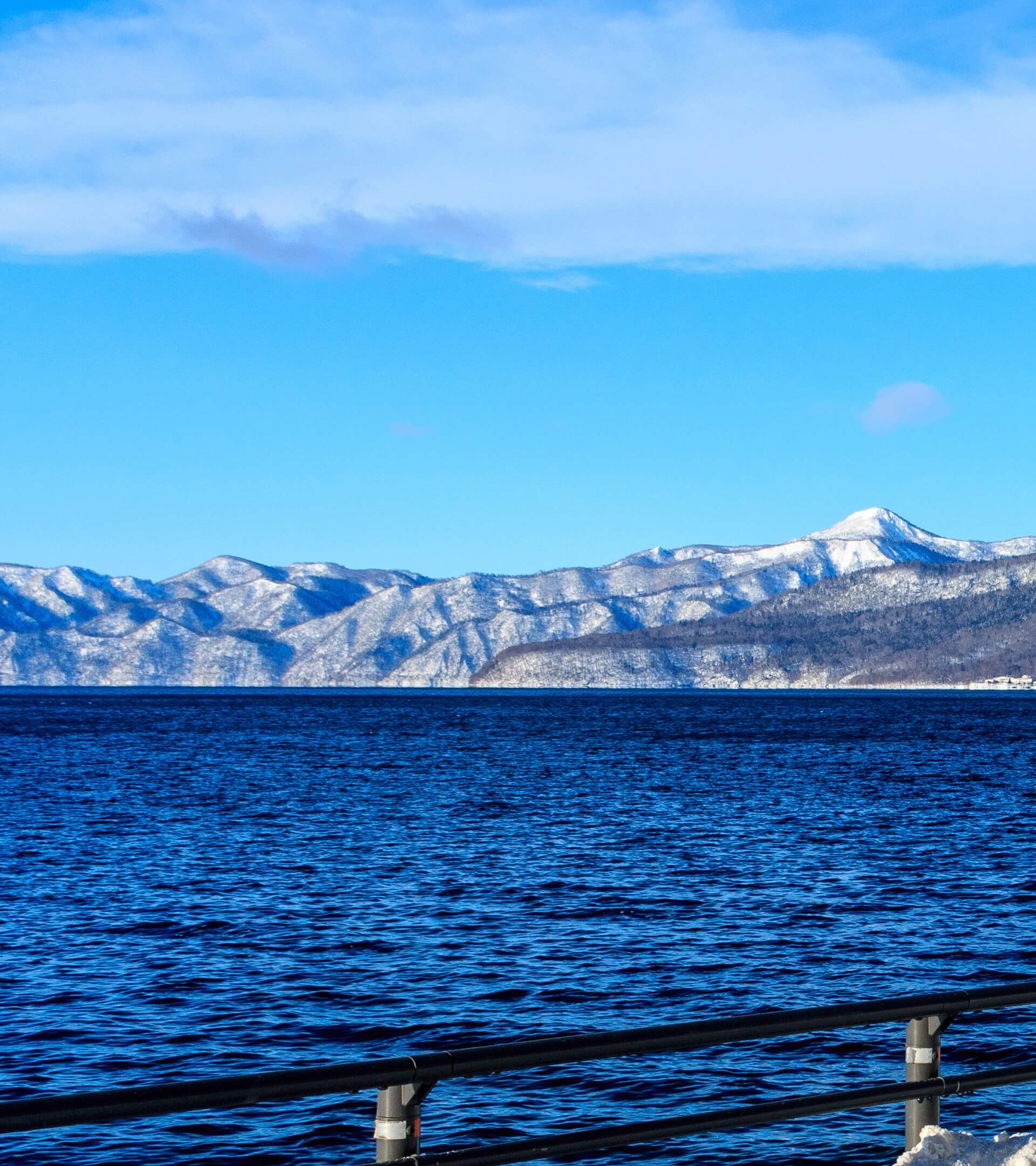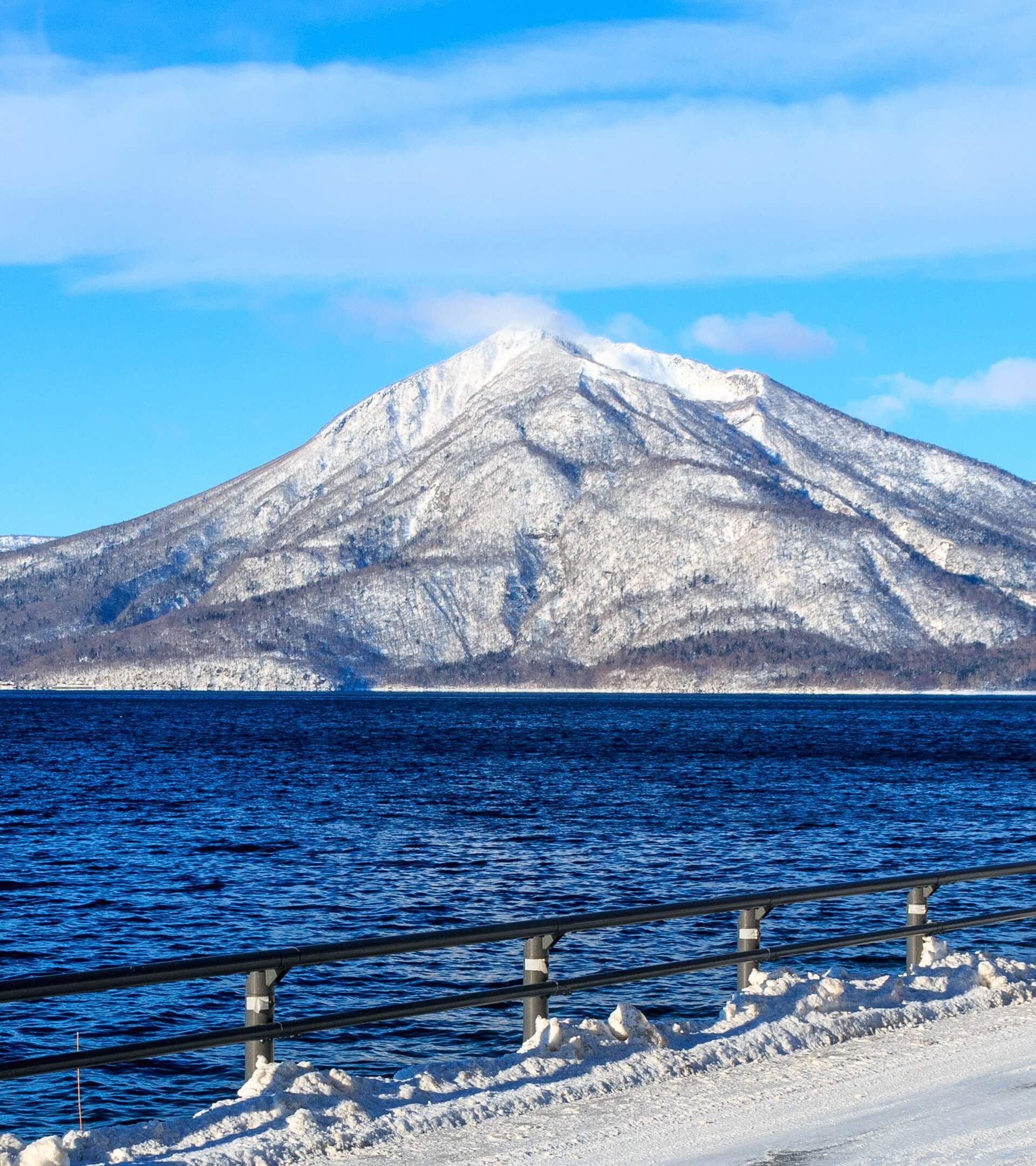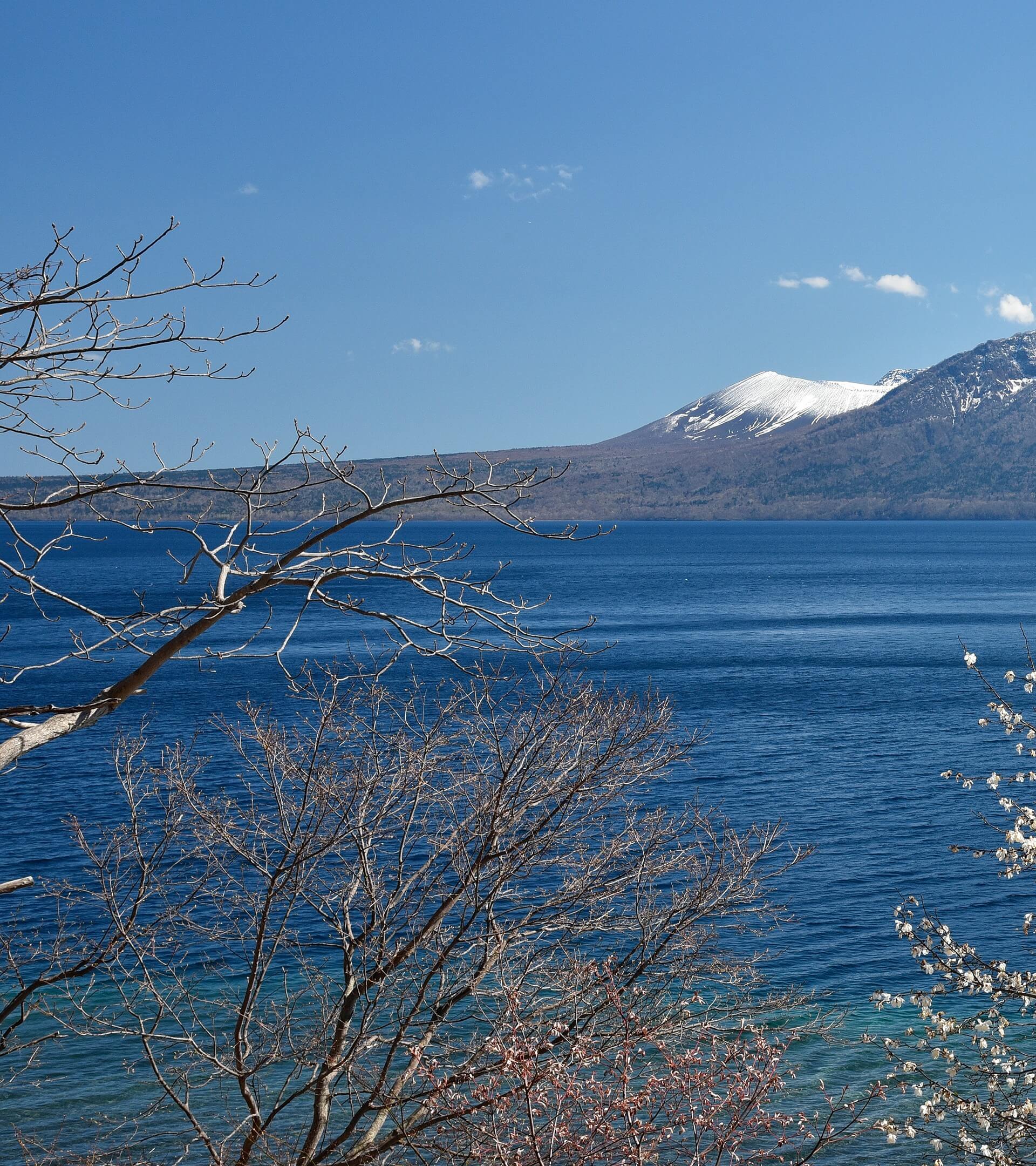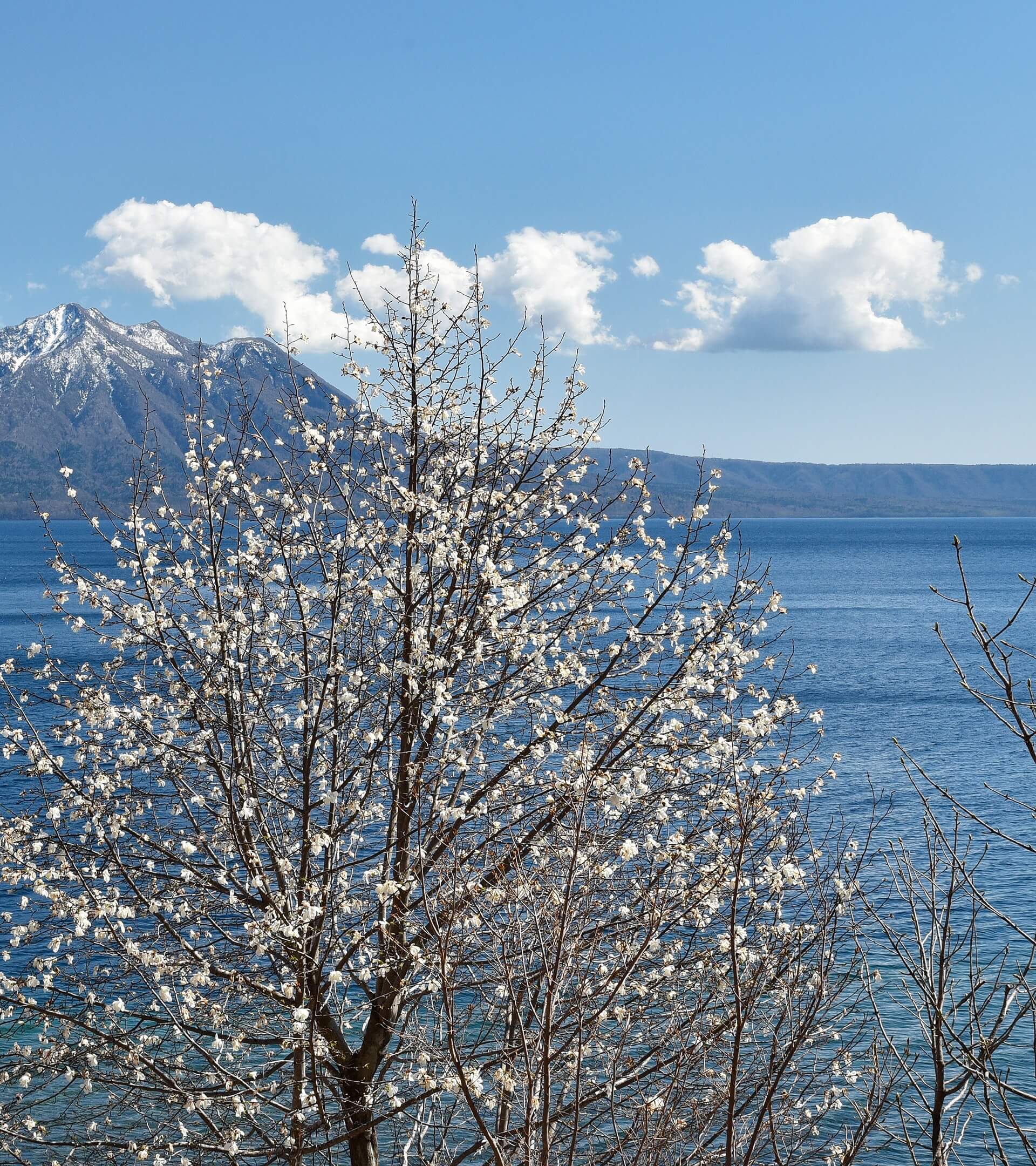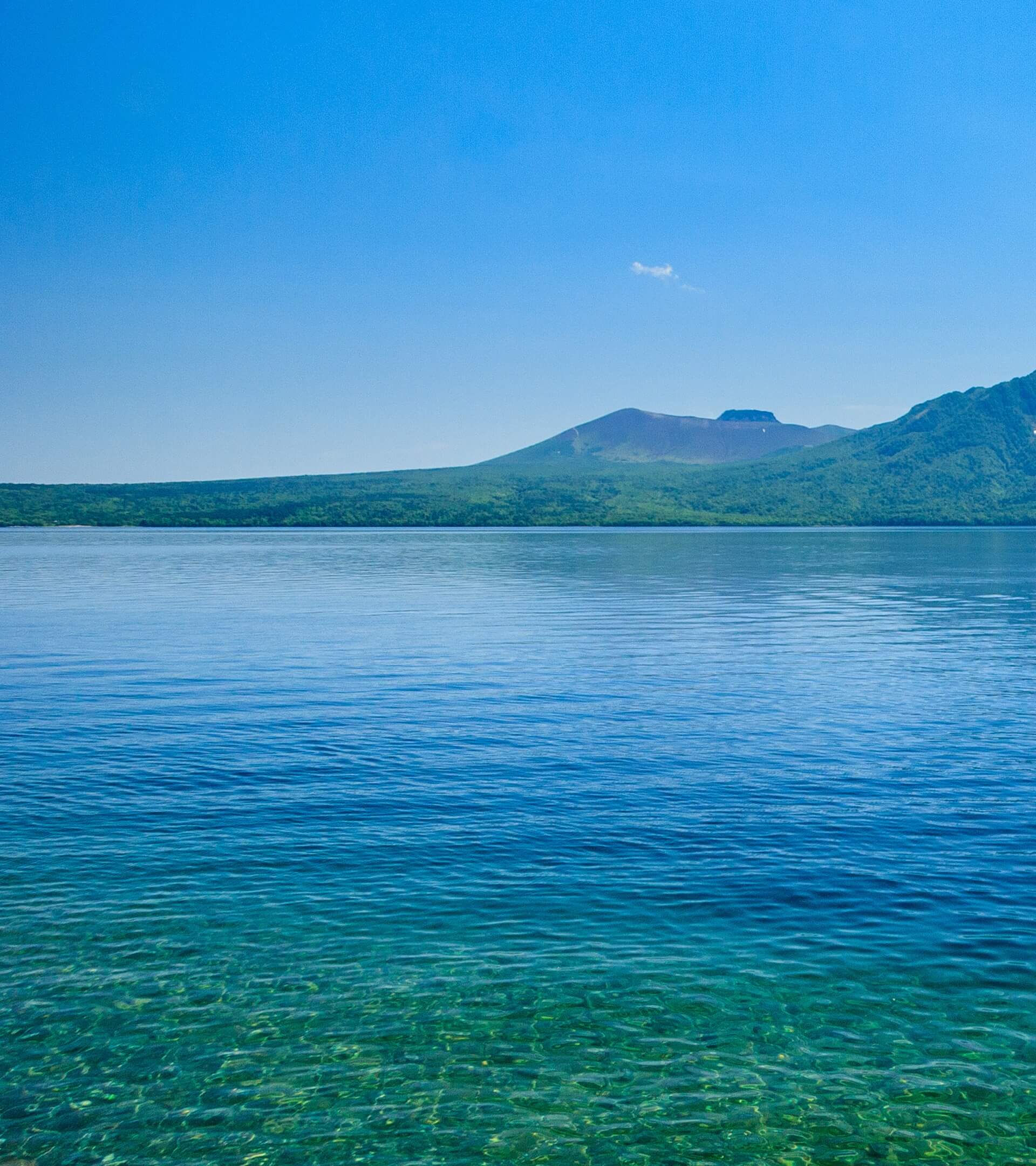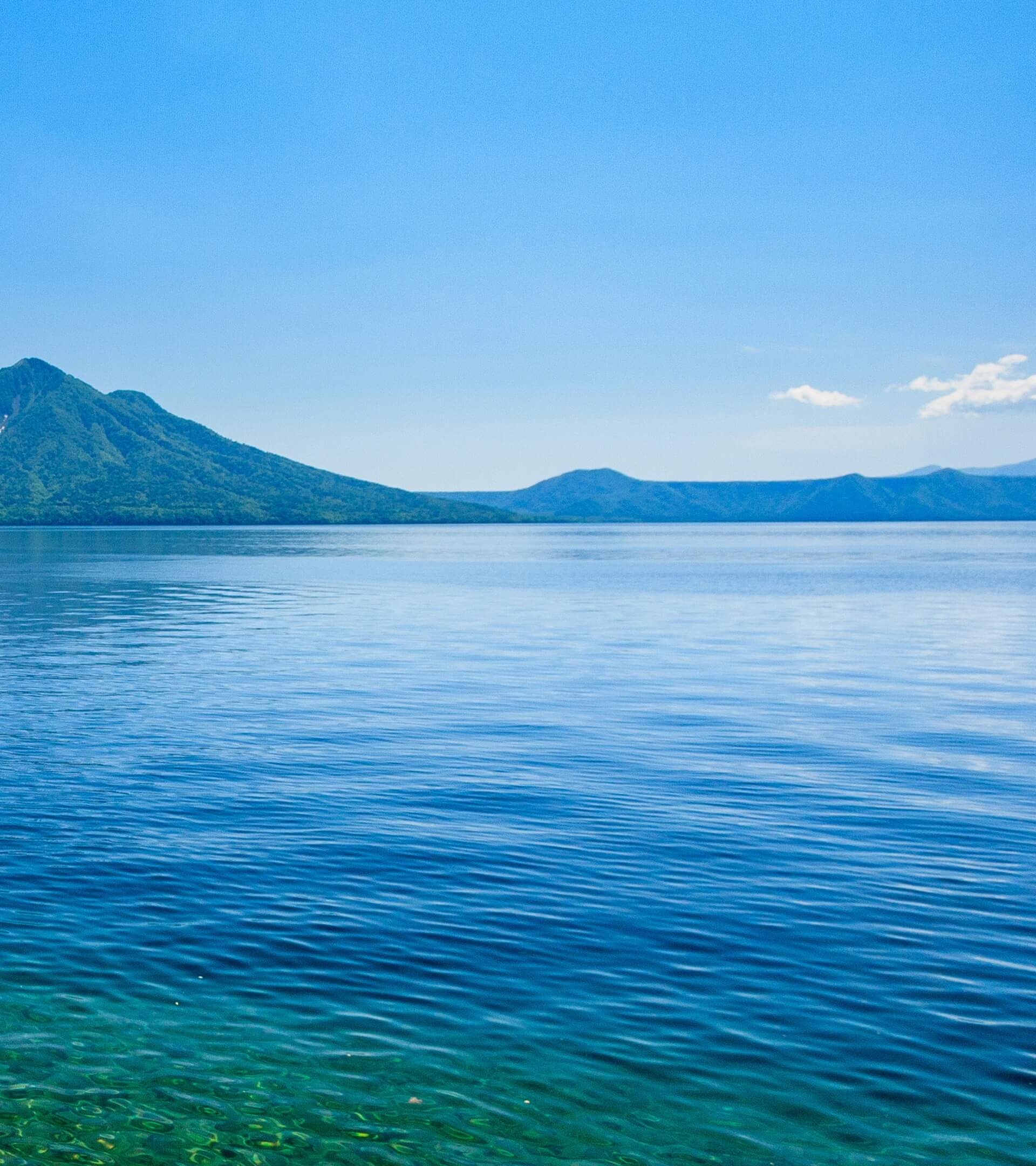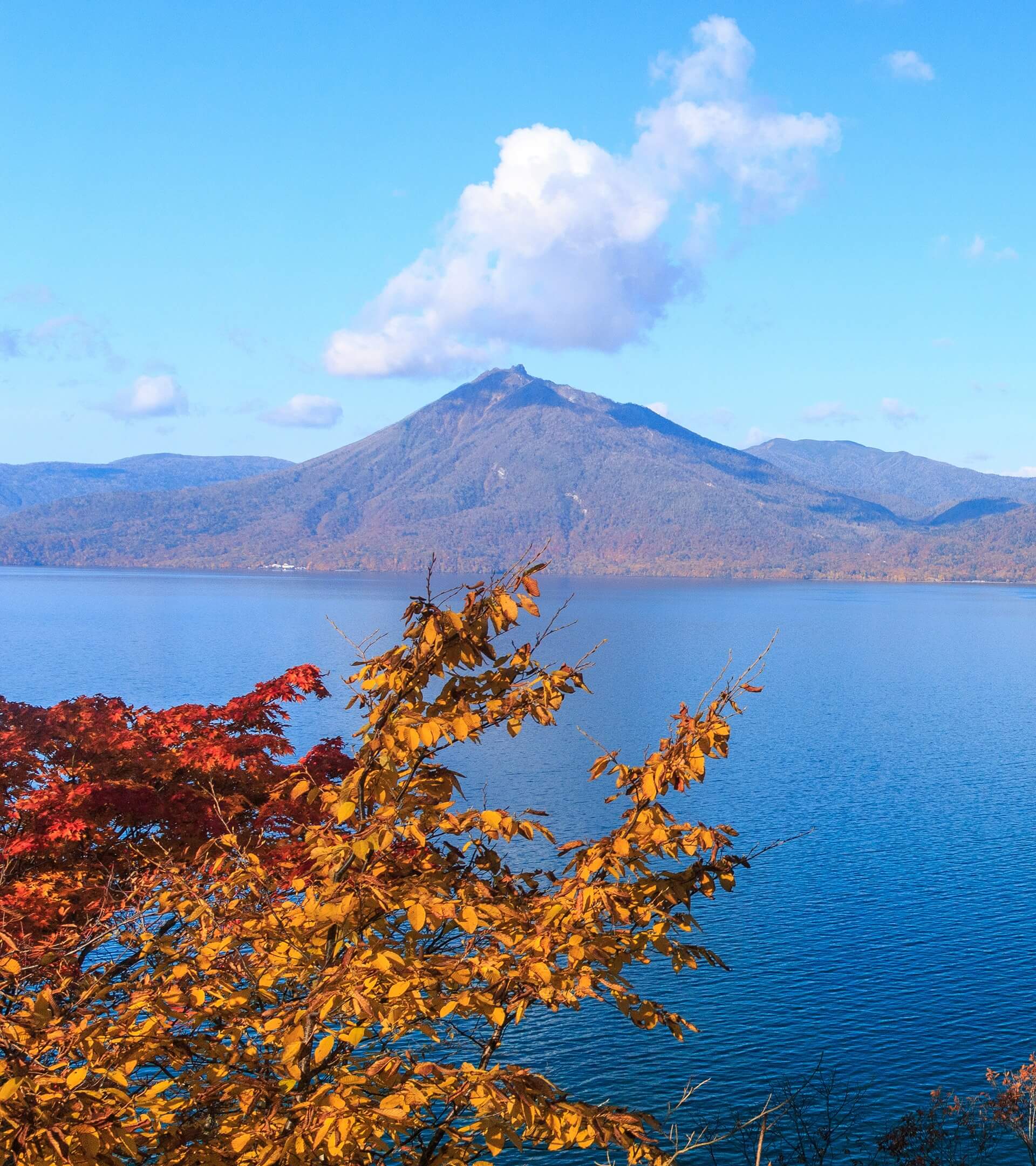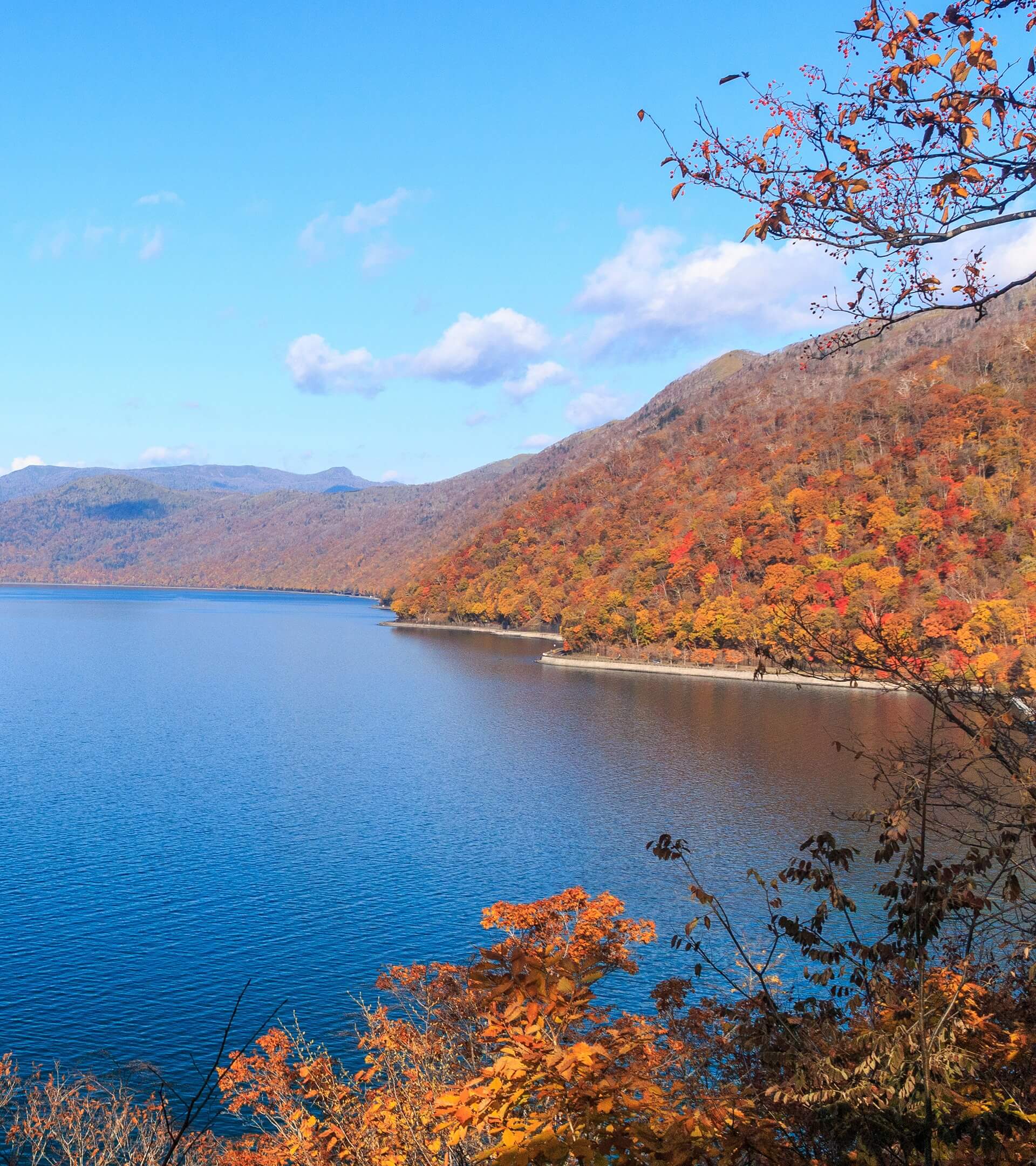I have never seen such a place so overflowing with beauty and harmony.
Close Video✖︎
支笏湖
Lake Shikotsu
Lake Shikotsu, a cardera lake formed by a volcanic eruption about 40,000 years ago, is famous for the clear blue of its waters. The origin the name is “Shi Kot”,which means “big depression” in the Ainu language of Hokkaido Indigenous people. It has been a valuable water source for Chitose since ancient times. With a-40km circumirence, 360m maximum depth, and 265m average depth, it is the second deepest lake in Japan and the northernmost Japanese lake that doesn’t freeze. The lake is very clear due to the limited plankton growth and low nutrient content of water. Water quality was evaluated as the best in Japan for 11 consecutive years until 2018.The clear water of Lake Shikotsu has a blue glow called “Shikotsuko Blue” when illuminated by light. The pure water of Lake Shikotsu enriches the surrounding nature.
view more
支笏湖
Lake Shikotsu
Lake Shikotsu, a cardera lake formed by a volcanic eruption about 40,000 years ago, is famous for the clear blue of its waters. The origin the name is “Shi Kot”,which means “big depression” in the Ainu language of Hokkaido Indigenous people. It has been a valuable water source for Chitose since ancient times. With a-40km circumirence, 360m maximum depth, and 265m average depth, it is the second deepest lake in Japan and the northernmost Japanese lake that doesn’t freeze. The lake is very clear due to the limited plankton growth and low nutrient content of water. Water quality was evaluated as the best in Japan for 11 consecutive years until 2018.The clear water of Lake Shikotsu has a blue glow called “Shikotsuko Blue” when illuminated by light. The pure water of Lake Shikotsu enriches the surrounding nature.
view more
支笏湖
Lake Shikotsu
Lake Shikotsu, a cardera lake formed by a volcanic eruption about 40,000 years ago, is famous for the clear blue of its waters. The origin the name is “Shi Kot”,which means “big depression” in the Ainu language of Hokkaido Indigenous people. It has been a valuable water source for Chitose since ancient times. With a-40km circumirence, 360m maximum depth, and 265m average depth, it is the second deepest lake in Japan and the northernmost Japanese lake that doesn’t freeze. The lake is very clear due to the limited plankton growth and low nutrient content of water. Water quality was evaluated as the best in Japan for 11 consecutive years until 2018.The clear water of Lake Shikotsu has a blue glow called “Shikotsuko Blue” when illuminated by light. The pure water of Lake Shikotsu enriches the surrounding nature.
view more
支笏湖
Lake Shikotsu
Lake Shikotsu, a cardera lake formed by a volcanic eruption about 40,000 years ago, is famous for the clear blue of its waters. The origin the name is “Shi Kot”,which means “big depression” in the Ainu language of Hokkaido Indigenous people. It has been a valuable water source for Chitose since ancient times. With a-40km circumirence, 360m maximum depth, and 265m average depth, it is the second deepest lake in Japan and the northernmost Japanese lake that doesn’t freeze. The lake is very clear due to the limited plankton growth and low nutrient content of water. Water quality was evaluated as the best in Japan for 11 consecutive years until 2018.The clear water of Lake Shikotsu has a blue glow called “Shikotsuko Blue” when illuminated by light. The pure water of Lake Shikotsu enriches the surrounding nature.
view more


